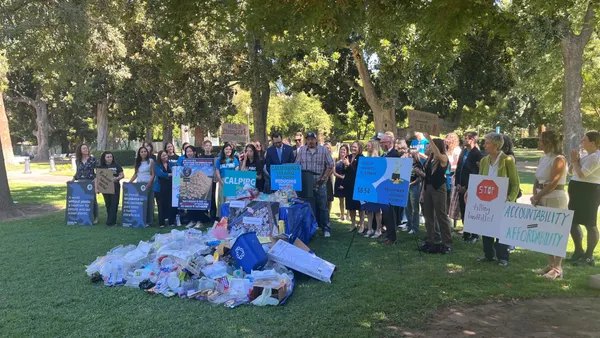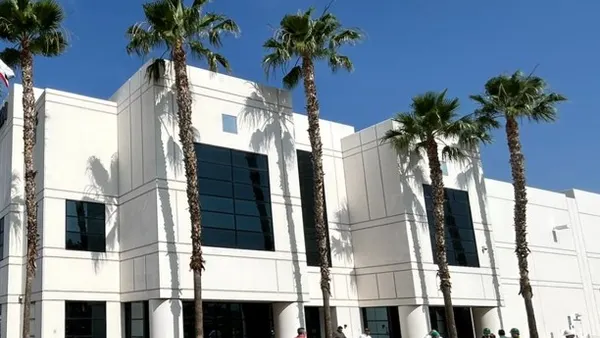Dive Brief:
- Connecticut's Department of Environmental Protection has selected the Sacyr Rooney Recovery Team to redevelop Hartford's Materials Innovation and Recycle Authority (MIRA) waste-to-energy facility, as reported by the Hartford Courant. The team comprises the Spanish company Sacyr, Manhattan Construction Group, Synagro and CWPM.
- The plan calls for recycling an estimated 40% of incoming waste, either through anaerobic digestion, composting or enhanced recycling technologies. The remainder would be processed via combustion. Sacyr Rooney must now reach a final agreement with Hartford, which DEEP hopes will happen by August, before the plan can proceed. The developer would need a year to obtain permits and two years for construction, with a target of 2022 for full operation.
- Hartford Mayor Luke Bronin promised to fight the plan or negotiate for additional environmental protections and higher payments to the city. Bronin said that incinerating and processing trash could not be "the highest and best use for approximately 100 acres of riverfront land." DEEP officials say the developer's plan would result in lower tipping fees and contract rates for customers.
Dive Insight:
The MIRA facility has been open since 1988, with a history of maintenance issues, but plays a key role in Connecticut's infrastructure by processing estimated 900,000 tons per year. That represents one-third of all the waste generated in the state. Connecticut has an overall diversion goal of 60% by 2024, but still sees WTE as a part of its future and a way to limit out-of-state exporting. MIRA's payments-in-lieu-of-taxes to Hartford have also decreased significantly in recent years, making the future of this project an especially charged political issue.
In addition to political opposition, the various WTE proposals have also faced a tumultuous time for other reasons. Another proposal from Mustang, a California-based firm, that would have involved shipping waste to upstate New York was met with strong community opposition in recent weeks. Covanta also submitted a proposal.
Sacyr Rooney's intention to digest so much organic waste could be an additional boon for Hartford, as nearby West Hartford is currently implementing a curbside food waste collections pilot program. A local digester with reliable capacity could encourage other nearby communities to adopt organics programs. The recent opening of the nearby Quantum Biopower digester has also made Connecticut an increasingly attractive option for processing material from other cities in the Northeast.
The tension in Hartford, between achieving higher diversion rates and whether WTE programs "count," as diversion, is not unique. A key factor in the debate over what truly counts as "zero waste" is whether cities should depend on sending material to WTE plants instead of other recycling methods. That debate is playing out with consequences in places like Baltimore, where community advocates want operations at a decades-old Wheelabrator facility to stop, citing concerns over pollution, and upstate New York, where community members are pushing back against a proposed facility.









